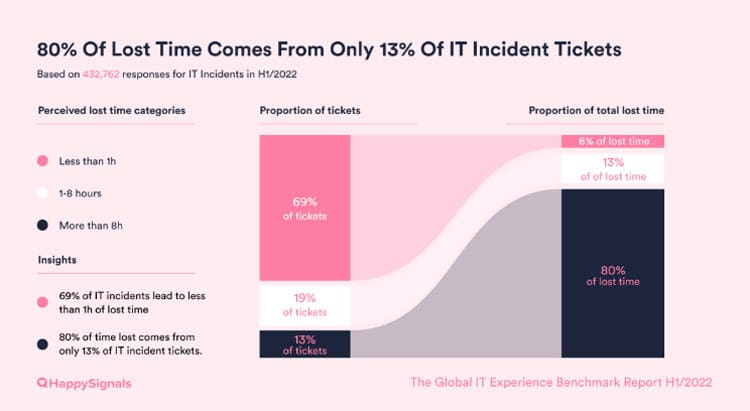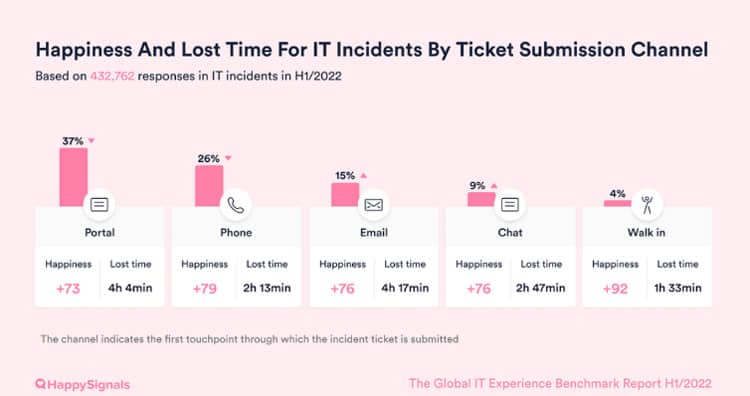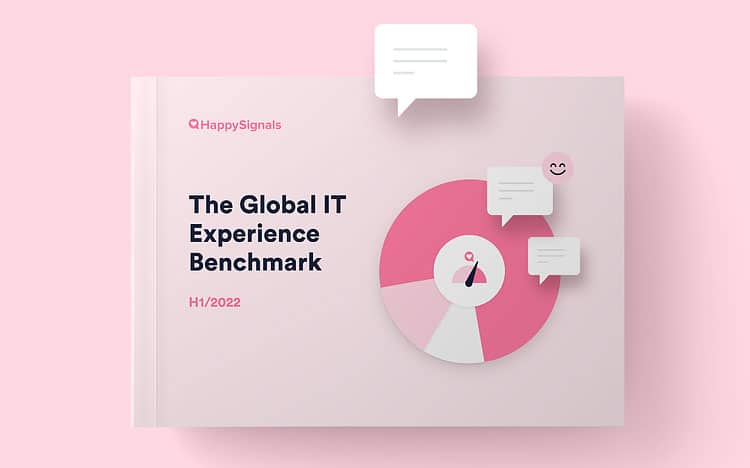Products You May Like
2022 was the year that corporate interest in employee experience really took off. A decade after the need for customer experience (CX) became mainstream, organizations became increasingly focused on what some consider “CX for employees.” Even Forrester Research, one of the early champions of the importance of CX, stated that “2022 Will Go Down As The Year Executives Were Forced To Care About Employee Experience” in late 2021.
So your email inbox and social media streams are likely filled with links to articles explaining how the need to focus on employee experience improvement is a “must-do” priority for organizations in 2023. I’m sure some of these articles describe the value of experience management well. Still, an alternative – and pretty scary – view to take is that of what happens when organizations don’t do experience management.
This article “picks up and runs” with this perspective, although it might initially feel like a negative approach, to uncover three issues that continue to happen without a focus on experience management. Importantly, these three issues are all opportunities that can be used in creating your organization’s business case for experience management.
Issue 1: Your business end-users continue to lose time and productivity
IT performance measurement is usually done at the point of service creation, not service consumption, potentially giving the service provider and service receiver a very different perspective of business function performance. A good way to demonstrate this “performance gap” is to consider why, when the IT department sees a “sea of green” on its performance management dashboard, employees can still have low perceptions of IT’s performance.
Our aggregated customer data – and remember, these customers are already focused on experience improvement – gives the service receiver or end-user view. For example, the chart below shows that the average employee perceived lost time or productivity globally is 3h 10min for IT incidents.

Source: The Global IT Experience Benchmark: H1/2022
This figure in itself might be cause for concern, but it becomes even more significant when multiplied by the number of incidents IT handles each week, month, or year. This perceived lost time adversely affects business operations and their outcomes, and its reduction can be a sizable line item in the business case for experience management.
But there’s more to this than the average lost time figure. Your IT service desk might be focused on improving the speed of incident resolution for all tickets when it’s likely a subset of tickets, and the cause(s) of the significant resolution delays, that need to be addressed – with 80% of lost time coming from just 13% of tickets:

Source: The Global IT Experience Benchmark: H1/2022
The critical question for your organization, and its IT leadership in particular, is whether there’s currently sufficient insight into how what the corporate IT service desk does and doesn’t do impacts employee experience and productivity. Importantly though, experience management isn’t about “looking back.” Instead, it should focus on improving IT service delivery and support in the right areas, i.e. improving “what matters most.” This need is the second key issue when your organization neglects experience management.
Issue 2: IT continues to spend money in areas that don’t create business value
Most IT departments will try to improve, perhaps through self-funded initiatives, if only to meet their performance targets better. But are they improving in the right areas? And do the improvements, while making things better for the service provider, actually make things better for the service receivers and the wider business?
Without experience data, your organization’s improvement spending is likely suboptimal, with it not uncommon for IT’s improvements to be driven by:
- The loudest and most-senior voices
- Personal beliefs
- Gut feelings
- Technology-vendor sales and marketing efforts
The result is that there’s little linkage between what IT deems essential to improve and “what matters most” to employees.
This situation means that the IT organization focuses on what it thinks is important, what it feels “comfortable” with, and potentially what is already performing acceptably in employees’ eyes – such that improvements are made in areas where the experience is already considered good. If your organization is lucky, it will have some improvements focused on the right areas, but even so, there’s no guarantee that the delivered improvement is as great as it could be.
A good example of how the lack of experience data and insight adversely affect improvement is the difference between IT support channels. As shown below, employee use of the IT self-service portal (which might now be shared with other business functions) has increased, perhaps thanks to continued marketing and other investments. However, it’s still perceived to lose employees way more time than simply calling the IT service desk.
Without this insight, an IT organization is unlikely to understand the issues with the portal channel (and the root causes), thanks to the growing adoption level, and will instead focus its improvement efforts elsewhere. Perhaps improving the phone channel that’s now used less and already offering one of the best experiences.

Source: The Global IT Experience Benchmark: H1/2022
Ultimately, by neglecting experience management, your IT department (or other business function, for that matter) doesn’t have the data and insight it needs to effectively focus its limited improvement investments, which means that IT continues to spend money on improvements in areas that don’t create business value.
Issue 3: Your company loses good employees because of bad IT experiences
Recent years have seen a rise in the importance of workplace experiences. Employers have also felt the adverse impact of poor experiences with IT experiences affecting employee recruitment and retention. For example, the Adobe 2021 State of Work Report found that:
- “Pre-COVID-19, almost a quarter (22%) of workers say they had already quit a job because workplace tech made their jobs harder.
- Today, nearly a third of workers (32%) say they have said goodbye to an employer whose tech was a barrier to their ability to do good work.”
The 2022 Freshworks State of Workplace Technology Report also confirms the issue, in particular that “Seven in ten (71%) business leaders acknowledge that employees will consider looking for a new employer if their current job does not provide access to the tools, technology or information they need to do their jobs well.”
This issue needs to be a significant cause for concern for employers, with poor employee experiences not only adversely affecting employee productivity, but also employee retention and, given the “social” world we now live in, potentially recruitment too.
Without experience management data, employee-retention issues related to IT experiences go unnoticed, and improvement opportunities are missed. However, another key service-provider-staff opportunity that shouldn’t be overlooked is that experience data provides immediate and granular feedback to IT employees on how well they have served or supported their business colleagues. The motivational effect of this not only aids employee retention but also helps to increase productivity.
The above three issues are great examples of how neglecting experience management adversely impacts your business operations and outcomes (as well as your employees). Flipping these issues, the adoption of experience management capabilities will deliver many benefits, including:
- Increased end-user efficiency
- That IT can focus on things that matter
- Less employee churn.
If you would like to learn more about how experience management, experience data, and experience level agreements (XLAs) will help your organization, please take a look at our ITXM framework and/or get in touch.
Have you read?
Best Business Schools In The World For 2022.
Best Fashion Schools In The World For 2022.
Best Hospitality And Hotel Management Schools In The World For 2022.
Best Medical Schools In The World For 2022.
The World’s Best Universities For Doctor of Business Administration (DBA), 2022.
